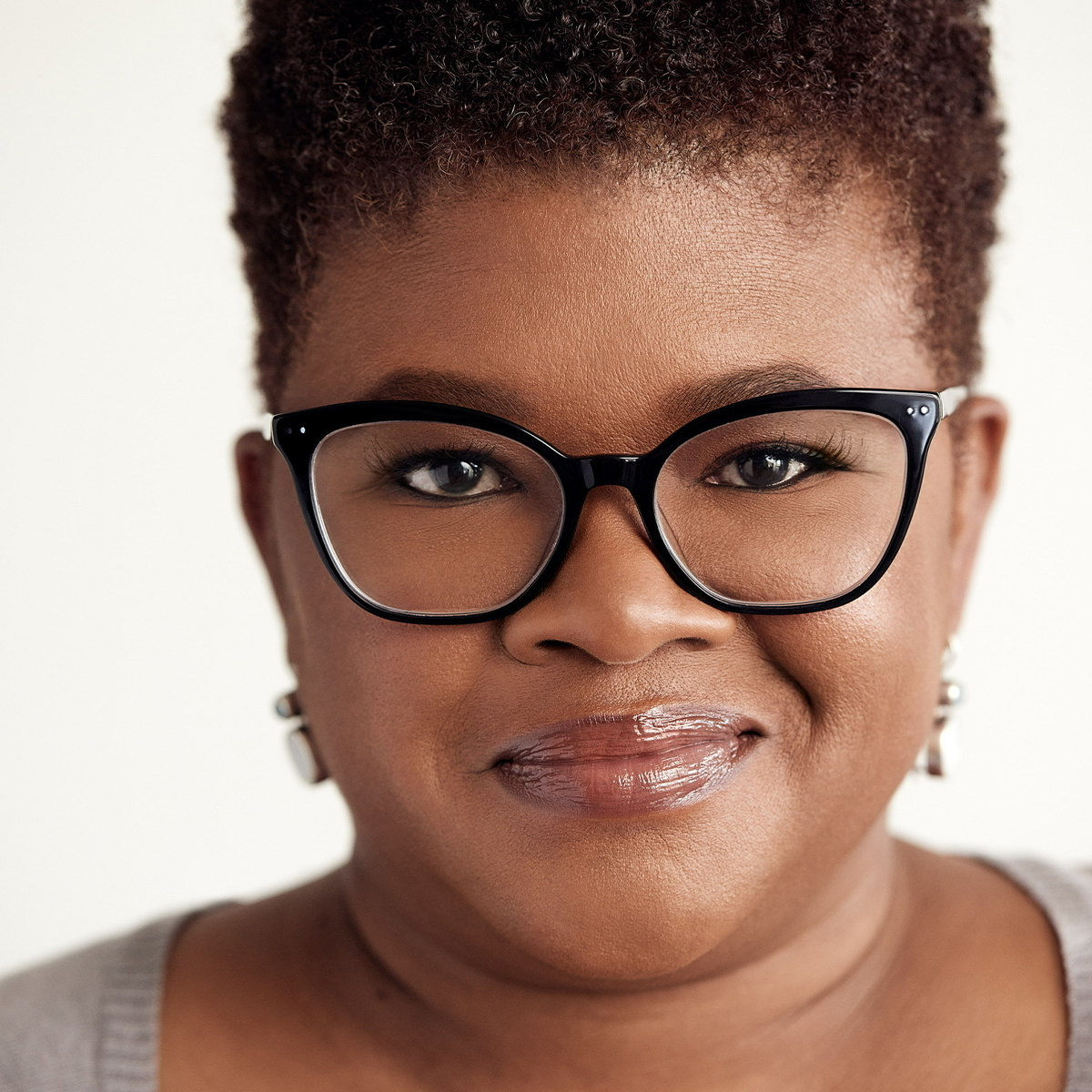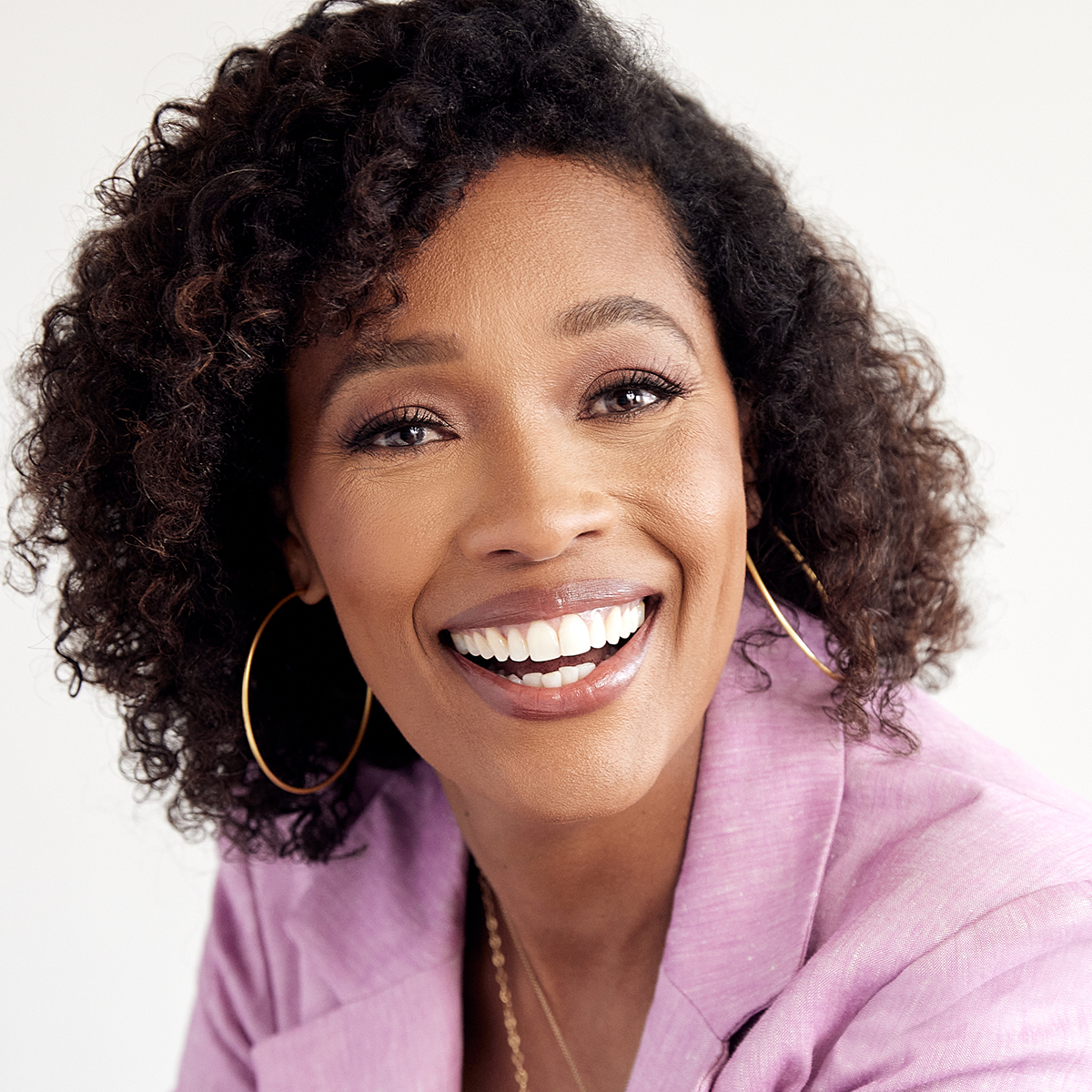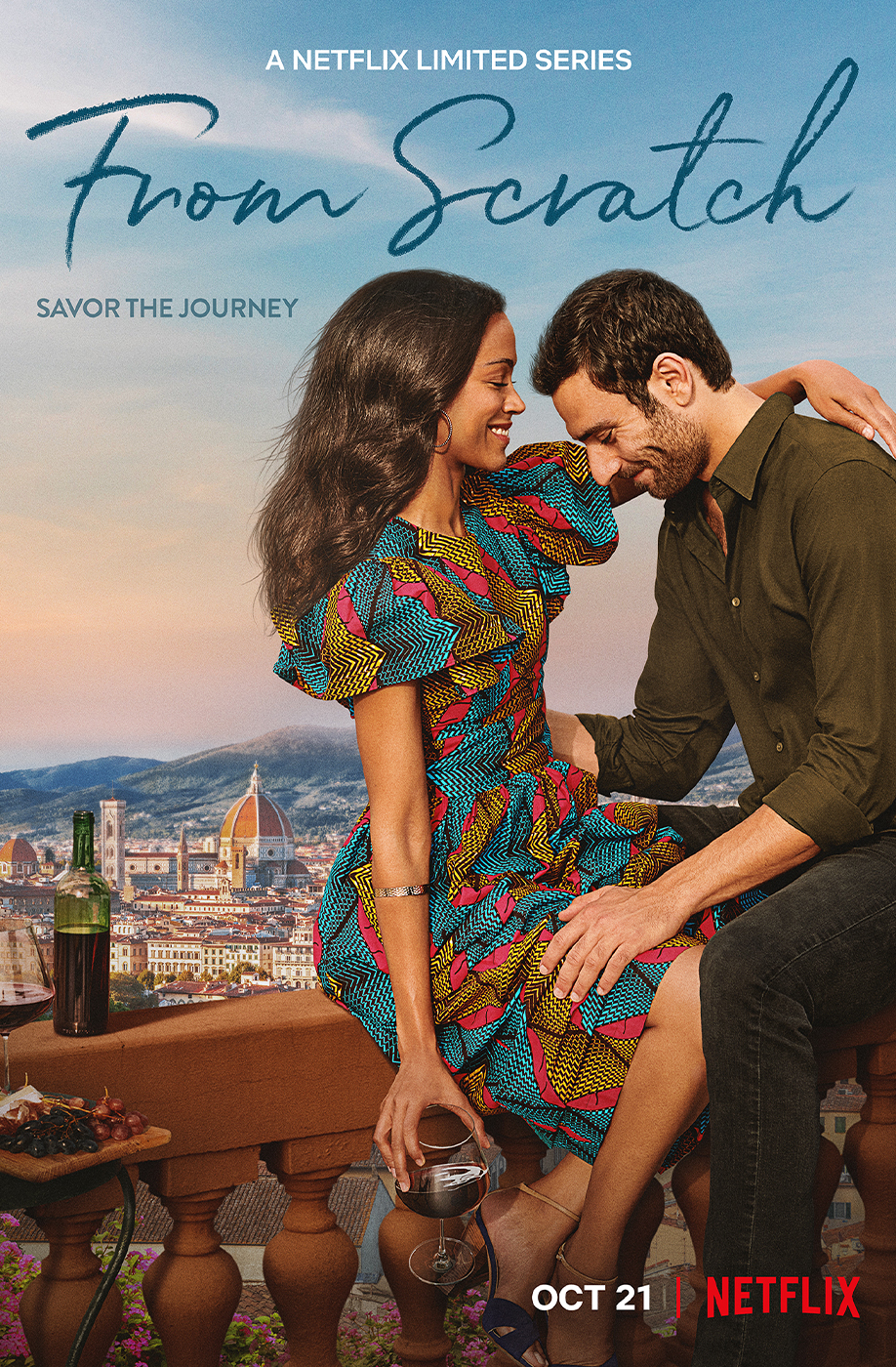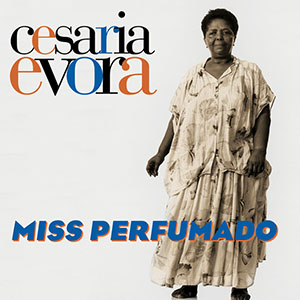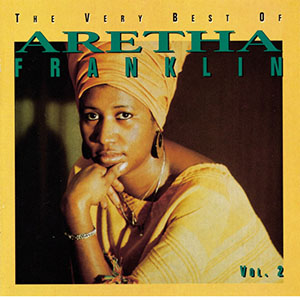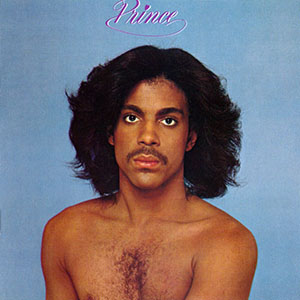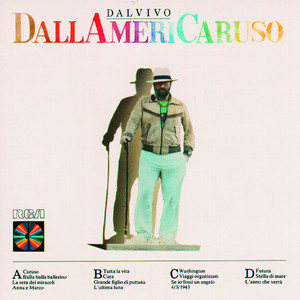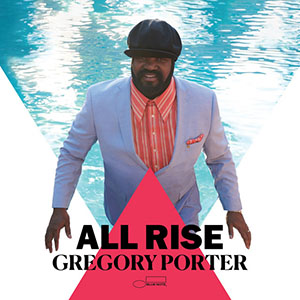Brené Brown: Hi, everyone. I’m Brené Brown, and this is Unlocking Us. I’m so excited because we’re back with Part 2 of our conversation with Attica and Tembi Locke. Again, we’re talking about From Scratch. Hopefully you saw it between the time you listened to the first episode with these like incredibly creative, loving, badass women. And now, if you have seen it, based on the recommendation, I’m sorry, and you’re welcome. Just too good. We are jumping back into our conversation talking about the success of the show. I mean, it debuted with over 32 million hours viewed, landed in the top 10 in 74 countries. And as I’m recording this right now, it’s currently the number one show on Netflix. It’s just, I mean, you cannot stop the truth from rolling out. It’ll mess with you. It’ll piss you off. But then it’s rolling out. It’s coming. I’m glad you’re here. Let’s jump in. Okay, before we get started, let me tell you a little bit about the folks we’re talking to. So, let’s start with Tembi. So, after going through a monumental roller coaster life experience, Tembi put pen to paper and began the very cathartic experience of writing down her personal story. And you know how we feel about stories here. This turned into Simon & Schuster’s New York Times bestselling memoir, From Scratch: A Memoir of Love, Sicily, and Finding Home, which was then chosen as a 2019 Reese Book Club pick and picked up by Reese Witherspoon’s Hello Sunshine production company and Netflix.
BB: So besides being a bestselling author, Tembi is a TV producer, an actor, a screenwriter, and an advocate who is a nationally recognized speaker. She talks about resilience loss, motherhood. She’s got a great TEDx talk. Her online platform, which I love, is called The Kitchen Widow. She really talks about her advocacy work and love of food to create a space for conversation about caregiving, grief, parenthood, illness, as well as sharing recipes. All things inspired by love. Attica is also a New York Times bestselling author. I mean, this is some serious sister like wonder twin powers activate. They’re not twins, but they’ve got like the sister activation going in creativity.
BB: So, Attica is also a New York Times bestselling author who has written five novels and been honored with a myriad of accolades, including an Edgar Award, the Harper Lee Prize for Legal Fiction, the Ernest Gaines Award for Literary Excellence, and the NAACP Image Award. She is a former fellow at the Sundance Institute’s Feature Filmmakers Lab, screenwriter, producer. You have seen her, if you’ve seen Empire, When They See Us, Little Fires Everywhere, you’ve seen her at work. Let’s just jump into this conversation, and I cannot wait for you to meet Tembi and Attica. Just wow, we go there. So, we’re back. We’re with Tembi and Attica Locke, and we’re talking about the laugh, cry, throw the television across the room, amazing series on Netflix, From Scratch. If you didn’t hear Part 1, go back because yeah, we’re just talking about all the truths in life that can suck but are also beautiful. Okay, let me get your reaction here. The series debuted with over 32 million hours viewed, landed in the top 10 in 74 countries. Were you scared about how this was going to do and resonate and whether it was going to be successful? Attica, you first. What were you thinking?
Attica Locke: Two things. One, there is a part of me that always saw it being this successful, to be honest with you. But I would have moments right before it came out of, “Well, I could be wrong.” It could just come out and sit there. I don’t know. I just had this felt sense that it was just going to resonate with people. So that it’s resonating to this degree or watching people’s individual reactions is kind of mind blowing. But I just feel gratitude. I just feel tremendous gratitude. And there’s a part of me that kind of isn’t surprised. My brother-in-law was really kind of that great. My sister’s kind of that great. Their story’s that interesting. His parents grew that much in a lifetime and were that warm and engaged. So, all of it is just such a good story. And I know from being in our writer’s room, everybody had a piece of it that had never, but they had issues with their daddies. They had issues with their siblings. They had issues with people getting ill. I just felt in my heart that this was really going to land with people. And I’m just happy and proud and deeply grateful.
BB: It landed.
Tembi Locke: Yeah. Attica had all of that sort of confidence around it. I mean, I was like, because it’s so deeply personal for me and I know when I wrote the book, I just wanted to write the book for me and for my daughter. And then I shared it and that was incredibly vulnerable and frightening and scary. And I wanted to, I remember wanting to call my publisher and be like, take the money back, put the book back on the shelf. Don’t actually publish this thing because I can’t… I… What have I done? And similarly on the eve of the show coming out, I thought, “Oh gosh, what is about to happen?” Because we’ve put our soul on the screen and there are parts intimate, the most intimate parts of my life and some of the most intimate experiences I have had the privilege of living, we’ve reenacted and depicted on screen. And I know that the world is a big, wide, and vast place with many corners of opinions and all the things, right? So, I was like, you know, I think it will be for some people and some people will be touched by it and they’ll see themselves in it. And maybe it’ll, you know, for other people, it’s like, they’ll just keep moving. I did not expect the overwhelming and also across multiple countries,
BB: Yes.
TL: The reception, because that to me was, also was wanting to really centralize…
TL: A Black woman’s experience in spaces we don’t normally get to see her. And also seeing Black families in places we don’t normally get to see them on screen. And going back to what Attica said in our earlier conversation, she left Hollywood because Hollywood was like, “We can’t tell stories about Black people.” So, I was also like, the fact that this story is resonating globally, whoa, I mean, the impact of that just on a sheer, like, maybe that changed the narrative, this old, stale, outdated, untrue narrative that people aren’t interested in other people’s stories just because the people don’t look like them. That is bananas. I’ve watched stories my whole life about people who don’t look like me and I’ve been incredibly invested. Why can’t it work in the reverse?
BB: That’s the question. I saw myself in both sisters. I saw myself in your dad. I saw myself unflinchingly in your mom a couple of times. [laughter] Because you know, like, yeah, my parents are divorced and remarried. Steve’s parents are divorced and remarried. We got a lot of shit going on. And so… But let me tell you something again, straddling the tension of opposites, both things can be true. There’s a brand of shows that are… I don’t know if they’re rom coms. I don’t know how you classify these things, where they will do the same storyline, but it’s a different cabin or a different, you know, fish out of water story. And now they do them like they’ll pick up a Latinx family and do it in a Black family or they’ll do white family traditionally. Y’all did not do that. You did get to see the Black family gathering for this incredible moment and this incredible wedding in Florence, but there was no hesitation to talk about real issues around Blackness. It was not a fairytale moment. It was in the hospital room where we need to talk to a family member. Fuck you, I am a family member. And your husband’s parents, she’s American. She’s Black American. She’s not Catholic. Again, my favorite line, had to write it down. Two things. Your husband reinvented Thanksgiving. “Lino’s reinventing Thanksgiving.” “Oh, good. Because if there’s anything Texans love, it’s different shit. Do not bring different shit on Thanksgiving to our people.”
AL: Yes. Yes. Do not. Do not. Never.
BB: Never. Where are the, like, onions on top of the green bean casserole and the marshmallow? Yeah. But like, “I haven’t been stared at this hard since I once stopped to use the bathroom in a Stuckey’s in Alabama.” You… I mean, I’m sad that everyone doesn’t know the Stuckey’s experience. I’m not sad that they don’t know the Black woman’s experience at Stuckey’s in Alabama. I’m sad for the people who do know that; I’m enraged actually, but you never… It was getting to see something we don’t see, but never letting the truth off the hook. Tell me, was there intentionality behind that? Did you have conversations about that?
AL: Yes, it was intentional on two levels. One, it’s just what, what I believe Tembi lived. It’s what our experience is of being in the world where you’re holding the grace of ascent as Black people and getting into new spaces while also still dealing with the old shit, another contradiction. And then it was also intent in terms of going through the process of inviting people for whom… People in our, either in the crew or in producers, anybody who, for whom the experience was something they didn’t know. And so there might be a reaction to it. “Like, well, I don’t get that.” So maybe it doesn’t belong or do we really need that? And pushing back and saying, “Yes, we do. Yes, we do.” And I say that lovingly, you don’t know what you don’t know, but you see it in publishing as well. In fact, I was just at a Writer’s Digest conference talking about this with someone where the people who are the gatekeepers or the people who help usher in this kind of product have to really be willing to trust the things that they don’t understand, the cultural Easter eggs or cultural points that may not be for you. They’re for another person in the audience, or they’re just for verisimilitude.
AL: And luckily, whenever we said, “No. No, this matters,” we were heard and we were listened to. And that’s at the Hello Sunshine level. And that’s at the Netflix level. And so that’s why we were able to have a kind of authenticity of experience because we had partners who were willing to listen and say, “Yes.”
BB: I just want to pause here. I want to like, again, they always joke about this as the pause-cast. I’m like the worst frickin’ person to have an audio program because I don’t feel the need to fill every second. But can I play back what I heard to make sure I heard it right? And then can I just play it back?
AL: Yes.
BB: It’s so frickin’ important that the gatekeepers in every industry, in my job, every job has some gatekeepers. They have the authority, they have the money, they have the yes or no, finally. For those folks to understand that in our work, I think this is especially true for people who have been traditionally pushed to the margins, to have moments, a nod, a conversation, a comment, something that I don’t understand what does that all mean. But to leave it in there because it’s a way to say to a group of people, “I see you and you see us,”
AL: Yes.
BB: Is imperative.
AL: Yes.
TL: Absolutely.
BB: I don’t trust a gatekeeper because actually what gatekeepers are saying… Actually, what I think is being said, is this true? I don’t know. I’m going to just think and talk at the same time, which is frickin’ dangerous. But is it true when they say you can’t have those? That they’re really talking about a dominant default white male audience?
AL: I wouldn’t even say it’s that conscious. I just think that sometimes when you see something new that isn’t a part of your culture, it may just be like, “Well, I don’t get what’s meaningful about that.” But we would know, and this could be at the level of just regionalism, like the Greenberg’s Turkey in Episode 2 from Tyler, Texas. If it doesn’t mean anything to you, it doesn’t mean anything to you. I’m not saying that people went through and were trying to take stuff out, but sometimes in the course of deciding where money is spent, which scenes need to be excised, if you don’t get a certain scene because you don’t get its value, you might be like, “Oh wait, we should cut this.” What I’m saying is that when Tembi and I would go, “No, no, don’t,” we were lucky to have partners who went, “Okay. I hear you and I trust you. I hear that that is resonant for your culture. It stays.”
TL: Yeah, no, I would just say that as viewers, as a young Black woman growing up, I watched things about Jewish people in New York, or I’d watch things about Mexican Americans, and I didn’t have to know everything, and it was fine and I still got the story and it was still enjoyable, and so there are things that I think sometimes gatekeepers feel as though they have been crowned with the, I have to know everything and if I don’t know everything, then it has no value and we’re here to say, “Put your crown down because guess what?”
BB: Put your crown down. I’m getting a t-shirt.
TL: Put your crown down… Put your crown down, we all bring a lot to the table. Let’s listen to it all. Let’s observe it all and what you don’t know, maybe you’ll hang around and ask some questions and figure out. If you don’t know, you better ask somebody. You better ask somebody. If you do that, that’s called learning. That’s interactive. That’s growth. That’s fun.
AL: And I’ve had that experience before and even with Little Fires Everywhere and Hulu, we had an issue with the second episode where I think one of the young characters gets told by a college counselor, the counselor at her high school, you’re in an appropriate math class for you, even though the girl says, “No, no, no, I’ve already done this class,” and we got notes saying, “Well, what’s going on here? Why is that counselor being so mean?” And every woman of color in the room went, “Wait a second, we’ve all had this experience,” and I was like, “Oh, this is Episode 2 and we’re getting this note, I think we’re going to need to talk about being really open.” And so, my boss, Liz Tigelaar, said “Attica…” Because I was like, let me write something. I wrote a letter to the Hulu execs and said, “Look, guys, we are trying really hard to check our own bias in the room, our bias as mothers, our class bias, our race bias.”
AL: “I’m going to invite you to do that as well and let you know that this experience in this scene, in this episode has happened to four women of color in this writer’s room.” And luckily, the great thing is Hulu went, “Okay, I hear you. Thank you. We then will continue to give notes through this new lens.” You have to learn how to stand up, push back, and pray that you have partners who go, “Okay, thank you for that check and now I’m going to pivot, and course correct.”
BB: I vividly… I mean, you know that we did a podcast series on Little Fires Everywhere and I vividly remember that scene.
AL: Yes. Very meaningful.
BB: I vividly remember that scene. And the other thing is, just because I love the poetry and symmetry of this, another way to think about this for me always is the more specific, the more generalizable.
AL: Yes, absolutely.
BB: You know, you may never have been to a Stuckey’s in Alabama. You know exactly what your mom’s talking about in that line. You may not have the same turkey that we have, but you know that there is a very serious commitment to either your cheesesteak place in Philly or your… You know, it’s like there is a, don’t mess with that with my family, dude. This is not okay.
TL: And by the way, we had to do the same thing with Sicily because Sicily was a lot of like… What we really wanted to show is that the Texans, East Texans are not dissimilar than the Sicilians. They both are very attached to their ways of doing things. Right? And when Amy gets to Sicily, she’s in a small town who has gotten… In small town gossip and all the things like Sicily is, you know, to make everything very, very authentic, and very honest and very real was important to us.
BB: Oh God. I mean, I know it was just… It was so much truth; I could barely take it. Honest to God, it was so much. Okay. Y’all ready for rapid fire? Because I know that we’re… This is not going to be rapid. Are y’all ready?
AL: Yes.
TL: Buckled my seatbelt. Let’s go.
BB: Okay. I’m going to take turns. Who goes first? Because whoever goes second is going to be thinking about it. I know how the creatives work.
AL: Oh gosh.
BB: Yeah. I got to take y’all. Okay. Attica fill in the blank for me. Vulnerability is?
AL: A superpower.
BB: Tembi, vulnerability is?
TL: Love.
BB: Second question. Tembi first. You are called to be very brave, but your fear is real. You can feel it and taste it in your throat. What’s the very first thing you do?
TL: Take a breath.
BB: Attica.
AL: I feel like I’m in Family Feud where we’re not supposed to give the same answer, but that was my immediate thought. Is breathe.
BB: That’s great.
AL: Breathe. Breathe.
BB: Yeah, mine too. Actually, because I’m a breath holder, so it’s helpful for me to remember. Breathe. Okay. Attica, last television show that you binged and loved?
AL: I’m currently still binging it. It’s The Patient on Hulu. I’m really fascinated by the questions that are being raised in the performances.
BB: Oh my God. I’m going to have to put that on my notes. Okay. Tembi?
TL: The last show that I binged and loved, I have to say the first thing that comes to mind is just Never Have I Ever, and I will say that not because I’m…
BB: Because you’re in it.
[laughter]
TL: Not just because I’m in it, but because I watched it with my daughter and it’s the one thing we can sit and watch together, and we meet in the shared space. It’s one of the spaces where we can talk about the same things when the show’s over. And I love that.
BB: Those are rare and important. Okay. This is an impossible question. Don’t tell me it’s impossible. I just want to know an answer. Ready? We’ll go Tembi first. Favorite movie, one you’ll never stop watching if you’ve come across it on the TV.
TL: Terms of Endearment.
BB: Lord, if I would have known that, I would have known what I was in for with this show. Okay. I mean, I would have known. Attica?
AL: A Soldier’s Story.
BB: Jesus, something’s wrong with y’all.
[laughter]
BB: Y’all just go right there.
TL: I’ve seen that movie 150,000 bazillion times and will watch it again.
BB: Neither one of those movies are easier upon multiple watchings.
TL: But I… And I’m not trying to make it get easier, I’m interested… Like for me, I get something new in the dialogue, in the performances, or I’m meeting it at a different place in my life. When I first watched it as a child, I was like, “Oh my gosh, here’s my city on a screen.” Like I was like, oh, by the way, somebody gets cancer and dies. Right? Like that was what I saw when I watched Terms of Endearment. And I remember the car scene with Shirley MacLaine and Jack Nicholson, right? The Corvette scene or a Porsche. I can’t remember what it is. But let me tell you, watching it in my twenties, different experience, certainly after Sato was diagnosed, now as a mom, like, so I’m meeting it in a different, and that’s the mark of great art to me is that it still can hold up and I can get new things out of it. So that’s why I would go back to it over and over again.
BB: Attica, would you say the same thing?
AL: Yes. Absolutely.
BB: Meeting it where it is.
AL: Yeah. And just contemplating the philosophy of it over and over and over again. I just think the storytelling is so well constructed.
BB: I don’t know why I’m saying y’all are not right because mine’s The Color Purple and it’s… None of us are right.
TL: That movie rocked my world when that… When The Color Purple came out. I mean, talk about… Yeah.
BB: I had to leave the theater. I just couldn’t make it through that first time. Yeah. And then I had a different experience with it as a mother. I just… Yeah, just… Yeah. And then even after George Floyd’s murder, I came across it and I watched it and I had a complete… I mean, it was just, yeah… Every time… I love that. I’ll send you a quarter and I’ll quote you when I say it, but it is the mark of good art. It has… It has grown with me and challenged me in new ways. Okay. Attica, a concert you’ll never forget.
AL: Rolling Stones, 1989, Steel Wheels, because my dad was so confused. My dad took me… He was so sweet to take us. It was me, my friend Lisa, and his… My stepmother’s brother Gerald and my dad was like, “What is happening?” And he just bought… I think he bought like five t-shirts because it was quieter to go to the merch table. So, he just kept going to the merch table to buy t-shirts so he wouldn’t have to listen to the concert. But it was very sweet of him to take us.
BB: Wait, was it at The Summit or what used to be called The Summit, in Houston?
AL: Yeah.
BB: I was at that concert.
AL: It might have been at the Astrodome, it might have been at the Astrodome, but it was, it was 1989.
BB: Okay. I have to think about that. That’s so funny. Do you still have any of the five t-shirts?
AL: No. I don’t.
BB: Okay. Tembi, concert you’ll never forget.
TL: It was the first big one and it was the Jackson Victory Tour. I mean, you just can’t like, you can’t forget it… As the spectacle, the pure spectacle. It’s just… It’s imprinted. So yeah, I won’t forget that one.
BB: God, I wish I would have seen that. Okay. This will be a tough one for this group. We’ll start with Tembi. Favorite meal.
TL: Oh my God. Brené Brown.
BB: I know.
TL: Favorite meal. Come on. What the, what the…
BB: I didn’t add this to this one. It’s just, we ask everybody, but you just have to.
TL: All right. I’m going to go classic. And I’m going to simply say a classic pasta al pomodoro, which is a classic spaghetti with a tomato sauce with basil. And it’s just super, super simple, but it will satisfy every time, every time.
BB: The food scenes in this show. I don’t know what my obsession is with this. So tell me what my obsession is with this. First of all, I know I’ve kept you too long, but the food battles, the food battles. I’m gritting my teeth. Let me tell you the food battles at the… At your in-laws table in Sicily. God bless America. That it was like, “Oh no, it’s on. Oh, shit is going to get… This is just… It’s bad. Somebody’s going to get poisoned and die.” There were some food battles here.
TL: Well, we talk about food… We use the food… Food is a character in our series. And it is used to woo. It is used to soothe. It is used to control.
BB: To wound.
TL: To wound. It is all the things. So, it is a character and it is… It is wielded at the hands of whatever human needs, whatever that human needs from the other human. And we let that play out.
BB: For some reason I’m obsessed with the way your mother-in-law, I know it’s the actor playing your mother-in-law and that Parmesan cheese thing.
TL: It’s beautiful.
BB: It’s beautiful. Okay. Favorite meal, Attica I’m curious.
AL: I can’t get it anymore. There was a restaurant in LA called Pane Vino and they had a gemelli with… A gemelli pasta with a beautiful sausage and sweet red onions. And it was fucking fantastic. And I can’t get it back. And I can’t get it back. It was so good. It was so good.
BB: Am I allowed to say here like, “Tembi, can’t you whip that shit up?”
[laughter]
TL: I could whip it up for you Attica. In fact, Attica, now that I know that you missed that, I don’t know that it will be as good, but I will… I will give you my best effort.
AL: Thank you.
BB: Oh God, I just feel like… And it was probably inappropriate, but I should probably be invited over for that.
TL: No, you should. We’re going to be in Houston. We’re going to be in Houston. So, we should.
BB: Oh my God. Call me. I’ll drive. I live right off 59. I could be there. All right. Attica first, a snapshot of an ordinary moment in your life that gives you real joy.
AL: My bedroom. I have a hillside house. So, when you’re in my bedroom, in my bed, and you’re looking at the window, you’re actually on the second floor of the house. So, it looks like you’re in a tree house. I have like a hundred something year old ash tree in the backyard. And so, when I’m in my bed, I feel like I’m in a tree house and I’m looking at leaves. I’m suspended in the air, in the tree. And it’s my happy place.
BB: I love it. I love it so much. All right. Tembi, an ordinary moment that gives you real joy.
TL: Ordinary moment for me is the first thing that came to my mind was when my daughter first got on her tricycle and was going down the driveway. And I just remember she turned to look back at me as like, “I’m doing it.” And her face was lit up and I thought, “Oh my God,” it was just the most beautiful, beautiful, beautiful moment. And it gives me joy that like baby young face smiling back at you. It’s just, oh goodness. I want to just eat her up.
BB: Yeah. Yeah. I was going to say it’s almost like edible. Like…
TL: Yes.
BB: Okay. Y’all gave us the mini mixtapes. These were five songs you couldn’t live without. [laughter] Okay. Oh good. Because of that reaction, you’re going first. Tembi goes first. I might need some help with yours. There’s some Italiano here. “Sodade?”
TL: And that is actually Portuguese, but yes, by Cesária Évora.
BB: Okay. “Bridge Over Troubled Water,” Aretha Franklin. “I Want To Be Your Lover” by Prince.
TL: Yes.
BB: “Caruso,” by Lucio?
TL: Lucio Dalla.
BB: Lucio Dalla. “If Love is Overrated,” by Gregory Porter. Now I’m going to tell both of you this because you’re creatives and you’re writers. No bullshit, semi-colons, or em dashes. One sentence. What does this say about you Tembi Locke? What does this playlist say about you?
TL: That I go deep in the feels and that I’m a romantic.
BB: I love it.
TL: I go deep in the feels. There’s nothing light about any of those songs. In fact, when I wrote them all down, I was like, “God dang it. Why can’t I just give up?” But I was like, “You know what? They asked and I’m bringing my authentic self to Brené” and it is, it’s all the… The memory and the feelings.
BB: Deep in the feels. Okay. Attica. There’s another podcast about this. “Bridge Over Troubled Water,” by Aretha Franklin, is also on your list.
TL: What? No.
BB: Yes. Your sister. You’ve got a sister, a sister mashup here. Okay. “Don’t Ever Let Nobody Drag Your Spirit Down,” by Eric Bibb. “Your Precious Love,” by Otis Redding. “If You Really Want to Be My Friend,” by the Rolling Stones. “All Around You,” by, is it Sturgill Simpson?
AL: Yes.
BB: Okay. One sentence. What does this playlist say about you, Attica?
AL: That I look to music, particularly blues and its fraternal twin, country, the good kind of existential country. I look to those forms of music to feel safe. And seen. Safe and seen.
BB: I have to ask a follow on. Is the safety in being seen… I’m a big… I’m a blues person and I’m a existential old country. Like the kind where you have to pull the car over because like George Jones, he stopped loving her today. You know? Is it because that’s music that said grief is the price we pay for love, that the hard stuff is okay too? Like is it because it normalizes the stripy-ness?
AL: Yes, and it’s music that our ancestors… It’s tonal aural sounds that our ancestors use to keep going. And a lot of those songs are about trying to figure out how to keep going in the face of. And so, they make me feel like, “Well, maybe I can do this. Maybe I can keep going.” These are songs that I reach for when I’m scared and upset, and they make me feel strong. Either because they’re saying… The song all around you, it’s about love is all around you. You know, “Don’t Ever Let Nobody Drag Your Spirit Down.” I play that a lot when I feel like somebody’s trying to kick my ass. So let me remember… My favorite line from that song is, “Remember you’re walking up to heaven. Don’t Ever Let Nobody Drag Your Spirit Down.” For me that means, and I think that speaks to me and Tembi through this entire process, which is we were always answering to something higher. So yes, there’s what’s happening on terra firma, I can’t say it as pretty as Tembi. There’s what’s happening on the ground, but we are also interested in what’s happening vibrationally at a higher level. And that particular song reminds me to stay connected to that.
BB: God that’s beautiful. Tembi, any thoughts on how “Bridge Over Troubled Water,” by Aretha Franklin ended up on both your lists?
TL: Yeah, I think what immediately came to me was how we started this conversation, my grandmother. I remember that song for me, hearing it as a child, the house would stop. And what it meant for me was for a second it was like, oh, the world fell away when this song comes on. What does that mean? And then also it evoked and like grounded, we’ve been talking about grounding in terra firma, it grounded the adults around me. That song anchored them and I could feel it as a kid. I could feel it. And it also… I would look at them differently. And I remember thinking, “Oh, they have lives. Like they have lives that don’t involve them being my parents.” Like, “They’ve seen something that maybe one day I might know about.” I don’t know. But suddenly everybody, everything just kind of stopped.
TL: And I don’t mean that they stopped physically what they were doing, but energetically there would be a tectonic shift when that song came on and it would sweep people away. And that was powerful. And I thought, “How did that woman do that? What does that song mean?” And I think I’ve asked myself over years of listening to it. And again, great art, it meets you where you are. It means something different to me at different times. And Aretha’s version of it is operatic. Like it hits every tone, every feeling. She takes you there. So yeah, I think that’s why it’s on your list, Attica also, maybe.
AL: Yeah.
BB: Well, I’ll end with Tembi and Attica Locke who have brought this incredible truth telling, storytelling, beauty, art, rage, grief, love story to us. I’ll end with this line from that song because I love that song. My wish for y’all is, “Sail on, Silver Girls,” because you are making some art that the world needs right now and you are healing us with it. And I am deeply grateful.
AL: Wow. Thank you. Thank you.
TL: Thank you. Thank you.
AL: Thank you so much. Thank you.
BB: Count me in as…
TL: Thank you for this conversation.
BB: President of the Fan Club.
TL: Thank you.
BB: Houston chapter H. Houston represent.
TL: Houston women. Houston women. Let me tell you. Houston women.
BB: Beyonce, Lizzo, come on.
TL: I mean, like Debbie Allen, Felicia Rashad, I mean, list goes on and on. Just yeah, Houston women. So, thank you.
AL: I’m very grateful. Thank you so much.
BB: Thank y’all for the time and congratulations on the ginormous, well earned, balm, B-A-L-M that we need.
AL: Thank you.
TL: Thank you. What a pleasure.
AL: Bye.
BB: Bye.
[music]
BB: All right. Just again, y’all need to see From Scratch on Netflix. It’s so good. So well-acted, so well written. Every emotion. I think it hits all 87 of the Atlas of the Heart emotions. It’s just so good, y’all. You can go to brenebrown.com. You can look up the episode page there. You can get links to their websites, their work, their books, a link to Netflix, which you probably don’t need, but there it is. This is just good stuff. Talking about awkward, brave, and kind. Attica and Tembi nail that description. All right. Thanks for being here, y’all. Unlocking Us is a Spotify original from Parcast. It’s hosted by me, Brené Brown. It’s produced by Max Cutler, Kristin Acevedo, Carleigh Madden, and Tristan McNeil. And by Weird Lucy Productions. Sound design by Tristan McNeil and Andy Waits, and music is by the amazing Carrie Rodriguez and the amazing Gina Chavez.
© 2022 Brené Brown Education and Research Group, LLC. All rights reserved.




